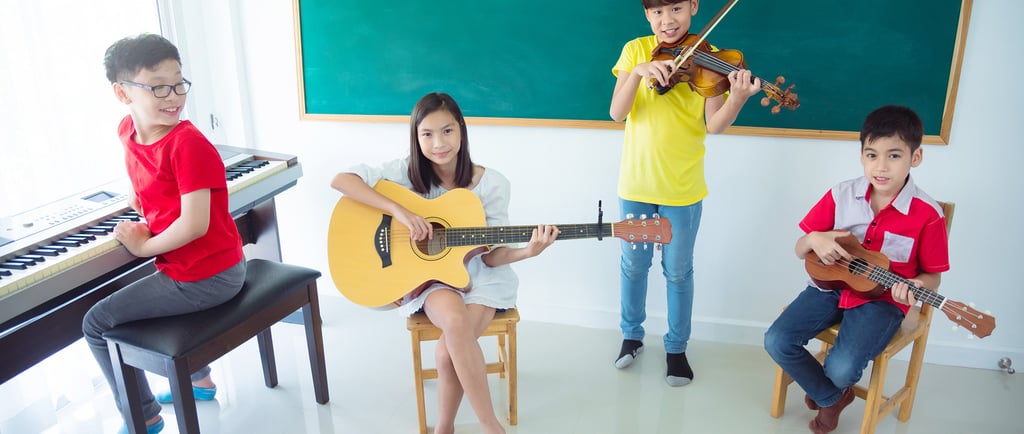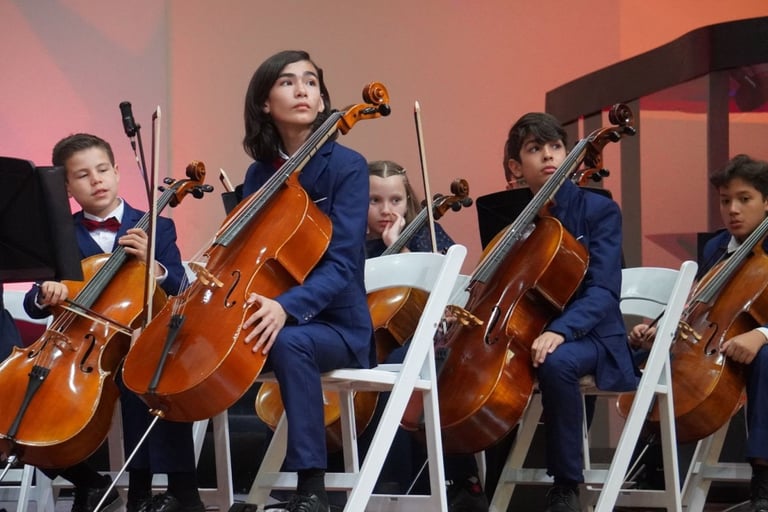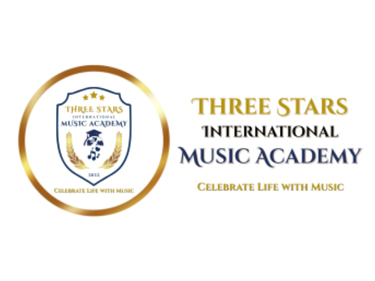
How Group Music Classes Help Children Build Social Skills
Music is a universal language that transcends age, culture, and background. For children, it is not only a form of expression and creativity but also a powerful tool for social development. Among the various approaches to music education, group music classes offer a unique environment where children can learn more than just notes and rhythms. These classes foster collaboration, communication, empathy, and a sense of belonging, making them a valuable part of a child's growth. In this blog, we explore how group music classes can significantly help children build essential social skills, backed by educational theory, real-life examples, and expert insights.
Sugander Santhapuri
5/31/20254 min read


1. Understanding Social Skills in Childhood Development
Before diving into the benefits of group music classes, it's important to understand what social skills are and why they matter. Social skills are the abilities that allow individuals to interact effectively with others. For children, these skills include:
Communication (both verbal and non-verbal)
Cooperation
Conflict resolution
Empathy and emotional understanding
Listening and responding appropriately
Taking turns and sharing
These skills are foundational for successful relationships, academic success, and emotional well-being. They are not automatically acquired but are learned and practiced through interactions in supportive environments.
2. Group Music Classes: A Social Learning Space
Group music classes, whether it's a choir, a band, an ensemble, or a general music workshop, provide children with opportunities to interact, collaborate, and create together. Unlike private lessons, which are one-on-one, group settings simulate real-world social environments where children must listen, respond, adapt, and contribute to a collective outcome.
In group music classes, children:
Work together towards a shared goal (a song or performance)
Follow group instructions
Take cues from peers and instructors
Engage in musical conversations
Support one another’s learning process
These activities naturally cultivate social competencies.
3. Communication Through Music
Music is inherently communicative. It requires children to listen attentively, express themselves, and respond in time. In a group class:
Active Listening: Children learn to listen to their peers' playing or singing to stay in sync.
Non-verbal Cues: Watching a conductor or band leader teaches children to read body language and facial expressions.
Verbal Interaction: Discussing music, giving feedback, and sharing ideas enhances verbal skills.
These interactions build effective communication skills that extend beyond the music classroom.
4. Building Teamwork and Cooperation
Playing music in a group is one of the purest forms of teamwork. Each child’s role is crucial, and everyone must cooperate to make the performance successful. In this setting:
Children learn the importance of timing and harmony.
They understand how their individual efforts contribute to the group.
They experience the satisfaction of a shared achievement.
This nurtures a sense of responsibility and interdependence.
5. Encouraging Empathy and Emotional Expression
Music is a deeply emotional medium. When children play or sing together, they connect not only intellectually but emotionally. Group music experiences:
Encourage children to be sensitive to each other’s emotional expressions.
Foster empathy as they learn to express and interpret feelings through music.
Provide a safe space to share joy, excitement, nervousness, or even frustration.
This emotional awareness is a cornerstone of strong social skills.
6. Developing Confidence and Leadership
Group music classes offer multiple roles: leading a song, starting a rhythm, giving cues, or performing a solo. These roles help children:
Step into leadership positions
Build self-confidence through peer recognition
Learn to lead respectfully and follow with discipline
Confident children with leadership experience are more likely to engage positively in social settings.
7. Managing Conflict and Problem-Solving
Like any group activity, music classes are not without disagreements. Children may clash over song choices, playing styles, or leadership roles. These moments are teachable opportunities:
Learning to negotiate and compromise
Resolving differences constructively
Practicing patience and understanding
These skills are essential in all social contexts.
8. Establishing Routine and Social Discipline
Group music classes often follow a structured routine:
Warming up together
Practicing in sync
Observing etiquette (like silence during others’ solos)
Such structure teaches:
Respect for others’ time and space
Self-regulation
Social norms and behaviors
Children who participate in structured group activities tend to display better behavior and focus in school and other areas of life.
9. Inclusivity and Diversity
Group music environments are often diverse. Children from different cultural backgrounds come together, bringing varied experiences and perspectives. This diversity:
Teaches respect and appreciation for others’ backgrounds
Encourages inclusion and reduces social anxiety
Helps children adapt to different communication styles and viewpoints
Learning to collaborate with diverse peers prepares children for global citizenship.
10. Case Studies and Real-Life Examples
Consider a group violin class where each student learns to play a part of a symphony. At the start, students may struggle to keep time or play in harmony. Over weeks, they begin to:
Anticipate each other’s parts
Adjust their tempo and dynamics
Celebrate small successes together
Parents and teachers often report improved communication, better peer relationships, and increased classroom participation as a result.
At Three Stars Music Academy, we've observed countless examples where shy children blossom into confident performers, and reserved learners become proactive collaborators, all through the power of group music education.
11. Expert Opinions and Educational Research
Research from organizations such as the National Association for Music Education (NAfME) and the American Psychological Association shows that music education improves social-emotional learning. Studies indicate:
Children in group music programs score higher in empathy and cooperation.
Music classes reduce social isolation and anxiety.
Collaborative music-making activates brain areas linked to trust and connection.
Educational theorists like Vygotsky emphasized the social nature of learning. His theory of the Zone of Proximal Development supports the idea that children learn best with the guidance and interaction of peers and mentors—precisely what group music classes provide.
12. Tips for Parents and Educators
To maximize the social benefits of group music classes:
Choose age-appropriate programs that emphasize collaboration.
Talk about the experience after each class—what they enjoyed, learned, or struggled with.
Encourage consistent attendance to build group rapport.
Model good social behavior by respecting teachers and peers.
Celebrate social milestones (e.g., making a new friend, helping a peer).
13. Conclusion: More Than Just Music
Group music classes are more than an artistic pursuit—they are a holistic developmental tool. Children don’t just learn to sing or play an instrument; they learn how to listen, lead, support, share, and grow together. These classes lay the groundwork for strong interpersonal relationships, emotional intelligence, and a collaborative mindset that will benefit them for life.
At Three Stars Music Academy, we believe in the power of group music to shape not only musicians but empathetic, confident, and socially skilled individuals. If you're considering music education for your child, group classes might just be the perfect place to start.
Ready to Enroll? Discover the joy of group music classes at Three Stars Music Academy. Visit our website to explore our programs, read success stories, and schedule a free trial class. Let’s make music—and friendships—together.


